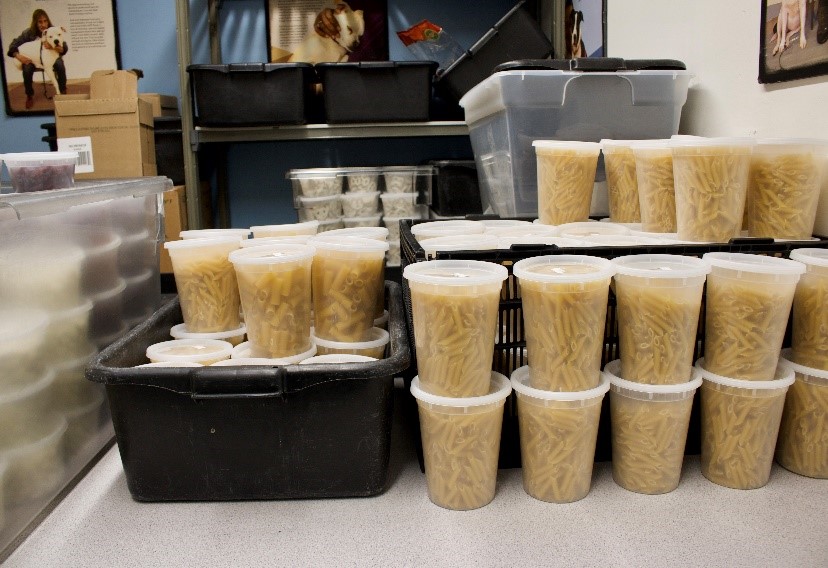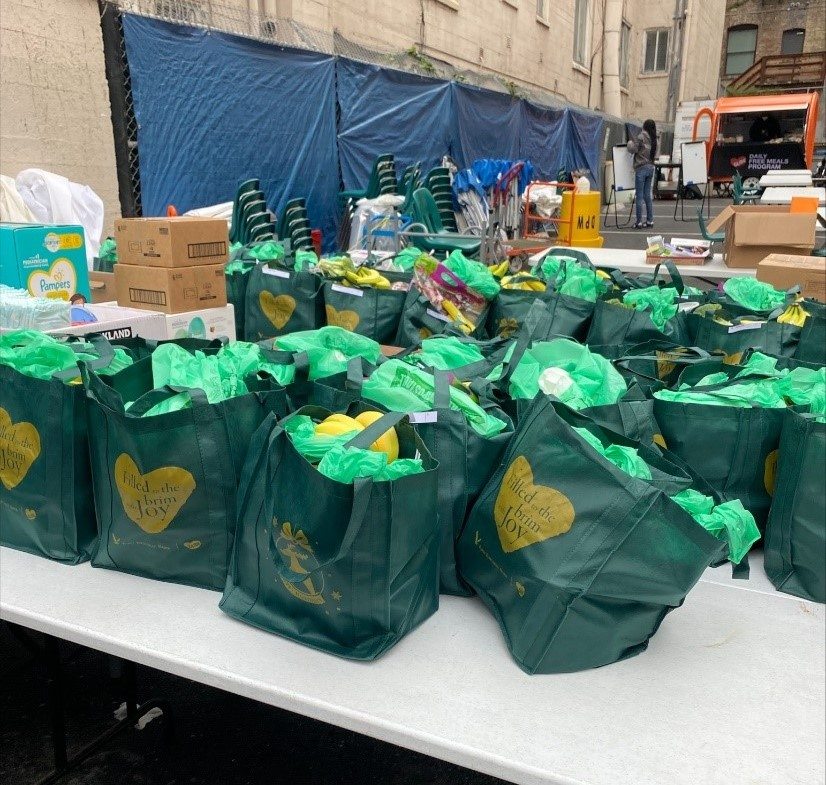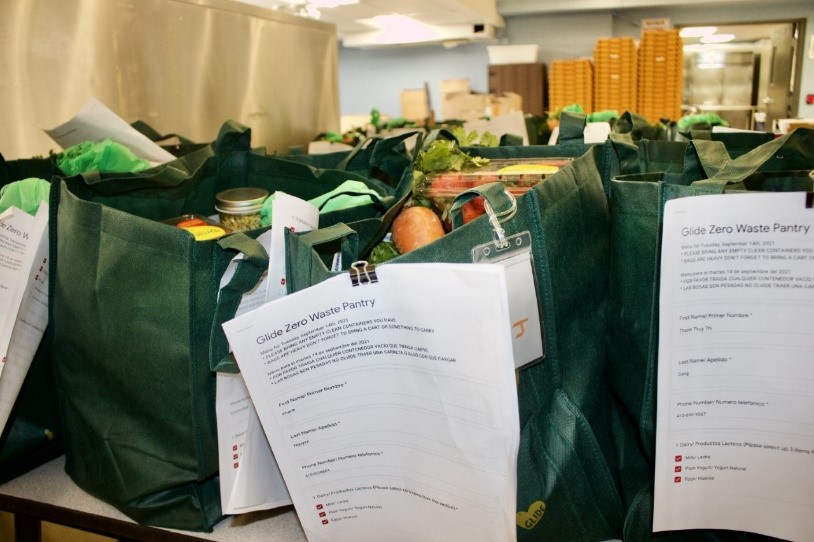The city of San Francisco generates about half a million tons of material in landfill each year, a number that has grown significantly over the course of the COVID-19 pandemic. At GLIDE, the waste didn’t go unnoticed. Members of GLIDE’s Family Resource Center (FRC) and Daily Free Meals Program observed how much plastic was being used to supply food to the community. “Everything was wrapped in plastic, including vegetables,” says Joselyn Barrera, Daily Meals Program Manager. “We wanted to take a different approach to address food insecurity and sustainability at the same time.” That’s why, this past summer, the two programs formed a partnership to introduce a Zero Waste Food Pantry, providing nourishing food in reusable and compostable containers.

An extension of the existing food pantry administered by FRC and Daily Meals, the sustainability-focused initiative serves an average of 40 families per week, including families who were not able to participate in the pantry’s normal Thursday and Friday distributions. Through targeted outreach, the FRC was able to identify gaps in families who were not being served by the pantry, while also recognizing an opportunity to introduce zero waste practices in the FRC’s food distribution.

Each week, families receive menus featuring a list of nutritious food items they can select. The pantry team then packs the food items into reusable containers and distributes them to families, while collecting containers from the previous week to be used once again. Food items are mindfully sourced through local Bay Area vendors that reflect the food cultures of participating families. One of the primary vendors, Arcadio’s Produce, is the only Latinx-owned produce company here in San Francisco.

GLIDE’s sustainability efforts started three years ago when the organization became a certified green business and started sorting waste seven days a week. These initial actions were initiated to align with the City’s Mandatory Recycling and Composting Ordinance, which requires everyone in San Francisco to keep recyclables and trash separated. Through waste sorting, members of the Meals team quickly began to see environmental and financial benefits as well as a learning opportunity to distinguish how GLIDE’s food security programs could be more mindful and take a more sustainable approach to serving the community.
Communities that are affected by racial injustice are the same communities that are most impacted by environmental injustice. Integrating sustainable practices within GLIDE not only lightens our environmental footprint, it provides an important avenue for opening a conversation around sustainable practices within the communities that GLIDE serves.
“I think this partnership with FRC is critical because we’re educating children and parents. It’s a multi-generational approach at teaching sustainability to the youngest and the oldest, who have different views about sustainability. In our community, it’s not something that we really talk about as minorities and people of color,” Joselyn reflects. “We just don’t talk about sustainability as much as we should. And I think that this is a perfect example of how you can impact both generations and I think it’s a great approach.”